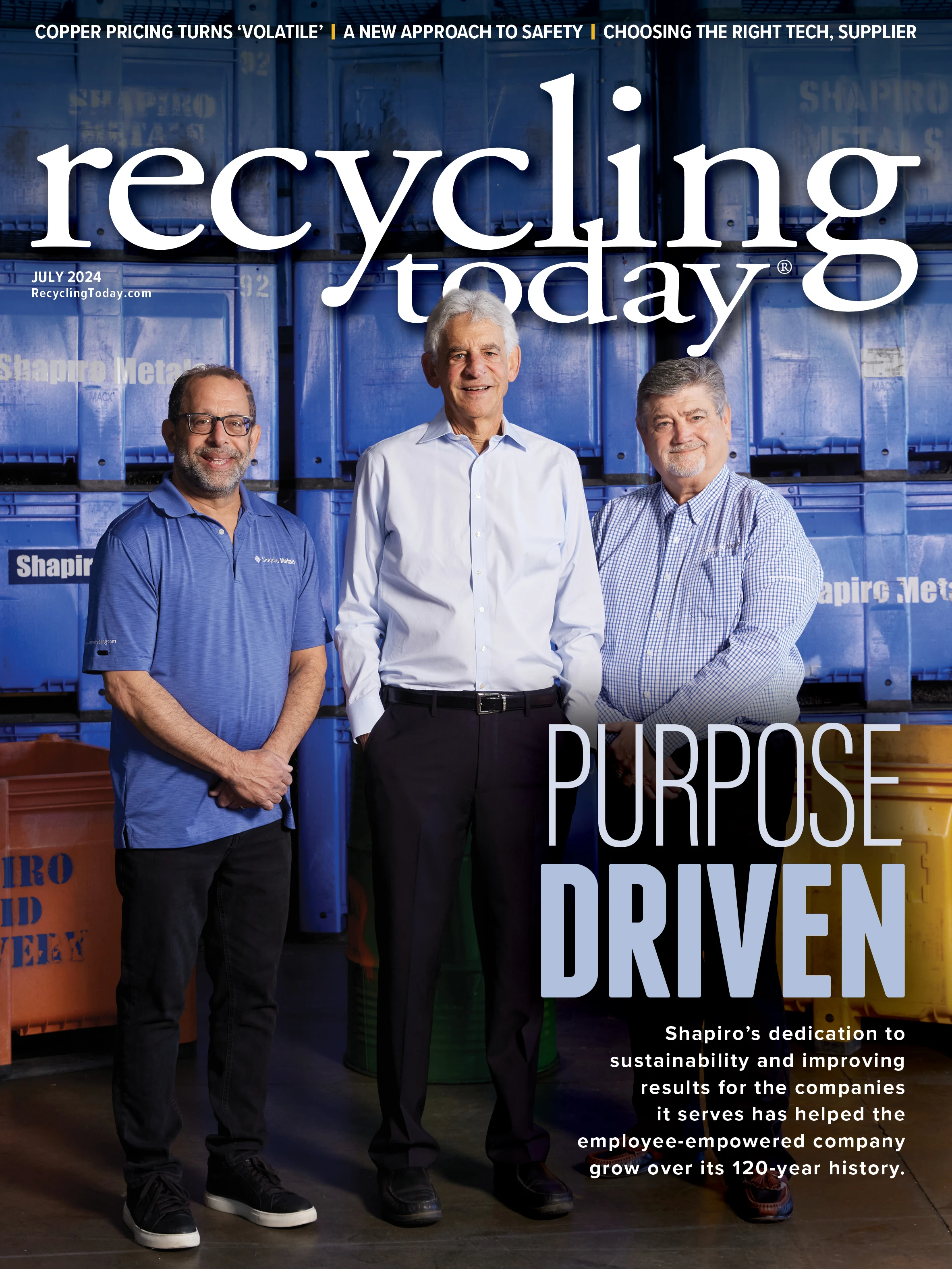Kellie Driscoll
NexTrex Development representative at Trex

of Kellie Driscoll
Kellie Driscoll began her career in the recycling industry seven years ago when she was hired by Winchester, Virginia-based recycled decking manufacturer Trex.
Trex recycles plastic film into composite decking materials, hosting various collection programs across the U.S. to gather film for its products, and Driscoll started her career in the company’s customer service department, which allowed her to become familiar with the Trex product offering.
“I was learning the ins and outs of the product, so [I gained] a lot of product knowledge,” she says.
Within a year, Driscoll was promoted to the sales department, something she says she genuinely enjoyed. In that role, she worked with retail chains, like Lowe’s and Home Depot, in the Virginia, Maryland and Washington areas.
After about three years, Driscoll took a position on the recycling team.
“I thought, ‘Why not try something new?’” she says. “I was already in different segments of the company, and it was a growth opportunity.”
Today, Driscoll is a NexTrex Development representative. NexTrex Development, also called the NexTrex Grassroots Movement, provides plastic film recycling outlets for municipalities, counties, nonprofits and universities.
“It was kind of a different transition, but I’m still selling in a way, because now I’m selling a recycling program,” she explains. “I’m selling the program that I spearhead.”
In the following interview, Driscoll discusses personal challenges as well as challenges facing the plastics recycling industry.
”It’s just the start of the conversation, because then someone’s interested and motivated to at least do something about it.”
Recycling Today (RT): What are some challenges you have faced in your career?
Kellie Driscoll (KD): One is the misunderstanding of plastic.
Plastic is a hard-to-recycle item; everyone knows that. But we are a company that needs the plastic, so just … letting [communities] know we can help and we can take this film [has been important].
Another challenge within the last, almost, three years is that some states have [plastic] bag bans. … For example, New Jersey [has] a ban on grocery bags. So, people have that question, “How are you going to get your film?” Because grocery bags are a large piece of it. Yes, they’re a large piece, but if you think about it, that gives us an opportunity for more education.
Plastic is not going anywhere. Yes, grocery bags may be banned, but you still have cereal liners, bread bags, [zip-close] bags, Amazon packages. None of that is going anywhere, so it’s an opportunity for us to educate more.
RT: What are some of the biggest challenges impacting the plastics recycling industry?
KD: There can be some misinformation ... and that creates doubt.
Suspicious people out there that are like, “Well, I’m collecting this and now I don’t know where it’s going.” That can be a hurdle for the plastics industry in general, but it can definitely be a hurdle for Trex because we want to continue the conversation that we are using this product, we’re not taking this product and selling it somewhere else. That’s how we create our boards. No plastic, no boards.
RT: What do you think needs to be done to address these issues?
KD: Sharing the successes of NexTrex Grassroots, sharing those successes and making people open an eye and say, “OK, well, if they do it, maybe we can do it.” Starting the conversation. It doesn’t have to happen in a week or a month. It’s just the start of the conversation because then someone’s interested and motivated to at least do something about it.

Explore the July 2024 Issue
Check out more from this issue and find your next story to read.
Latest from Recycling Today
- Waste Connections reports Q4 results, closes 24 acquisitions in 2024
- Shred it where you make it with WEIMA
- Kuusakoski to exit US market
- IMFA lines up Huhtamaki keynote speaker
- Bolder Industries receives equity fund investment
- Gerhard Lang Recycling partners with Tomra Recycling in aluminum alloy sorting project
- International Paper announces facility closures
- BCI briefing for legislators focuses on aiding domestic battery manufacturers





